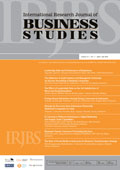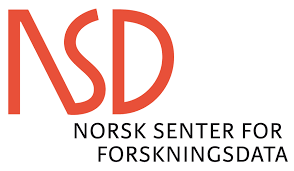Article Metrics |
|
|
The Predominant Elements for Strategic CSR Implementation in SMEs
Abstract
Keywords
Full Text:
References
Ansong A. 2017. Corporate Social Responsibility and Firm Performance of Ghanaian SMEs: The Role of Stakeholder Management. Cogent Business & Management. 4:1333704.
Eriyatno. 1998. Ilmu Sistem: Meningkatkan Mutu dan Efektivitas Manajemen. Bogor: IPB Pr.
Gahramanova S. 2019. The Role of Corporate Social Responsibility in Sustainable Development of Small and Medium Enterprises in Azerbaijan. 37th International Scientific Conference on Economic and Social Development – Socio Economic Problems of Sustainable Development.
Jenkins, H. (2004). A critique of conventional CSR theory: an SME perspective. J General Management. 29, 37-57.
Jenkins, H. (2006). Small Business Champions for Corporate Social Responsibility. J Business Ethics. Small and Medium-Sized Enterprises and Corporate Social Responsibility: Identifying the Knowledge Gaps. 67(3), 241–256.
Jenkins, H. (2009). A ‘business opportunity’ model of corporate social responsibility for small- and medium-sized enterprises. Business Ethics: A European Review, 18(1), 21-36. Johnson, H.H. (2003). Does it pay to be good? Social responsibility and financial performance. Business Horizons, 46(6), 34-40.
Mandl, I., & Dorr, A. (2007). CSR and Competitiveness: European SMEs’ Good Practice. KMU Forschung Austria, Austrian Institute for SME Research (KMU).
Marimin, Maghfiroh, M.N. (2010). Aplikasi Teknik Pengambilan Keputusan Dalam Manajemen Rantai Pasok. IPB Pr. ISBN: 978-602-440-301-0.
Marimin. (2017). Sistem Pendukung Pengambilan Keputusan dan Sistem Pakar. IPB Pr. ISBN 978-602-440-606-6.
Martinez D, Madueno JH, Jorge ML, Sancho MPL. 2017. The Strategic Nature of Corporate Social Responsibility in SMEs: A Multiple Mediator Analysis. Industrial Management & Data Systems. 117(1):2-31. DOI: 10.1108/IMDS-07-2015-0315
McWilliams, A., Siegel, D. S., & Wright, P. M. (2005). Corporate social responsibility: Strategic implications*. Journal of Management Studies 43(1). doi:10.1111/j.1467-6486.2006.00580.x
Murillo, D., & Lozano, J.M. (2006). SMEs and CSR: An Approach to CSR in Their Own Words. J Business Ethics, Small and Medium-Sized Enterprises and Corporate Social Responsibility: Identifying the Knowledge Gaps. 67(3), 227-240.
Perrini, F. (2006). SMEs and CSR Theory: Evidence and Implications from an Italian Perspective. J Business Ethics. 67(3), 305-316.
Porter, M.E., & Kramer, M.R. (2006). Strategy and Society: The Link Between Competitive Advantage and Corporate Social Responsibility. Harvard Business Review. 84(12), 78-92, 163.
Santos, M. (2011). CSR in SMEs: strategies, practices, motivations and obstacles. Social Responsibility J. 7(3), 490-508.
Saxena, J.J.P, Sushil, & Vrat, P. (1992). Hierarchy and Classification of Program Plan Elements Using Interpretive Structural Modelling. System Practice. 5(6), 651–670.
Copyright (c) 2022 Sandy Gunawan, Rizal Sjarief, Popong Nurhayati, Yudha Heryawan Asnawi, Handito Hadi Joewono
International Research Journal of Business Studies has been covered by the following services: | ||||||||||||||||||||||||
|



















